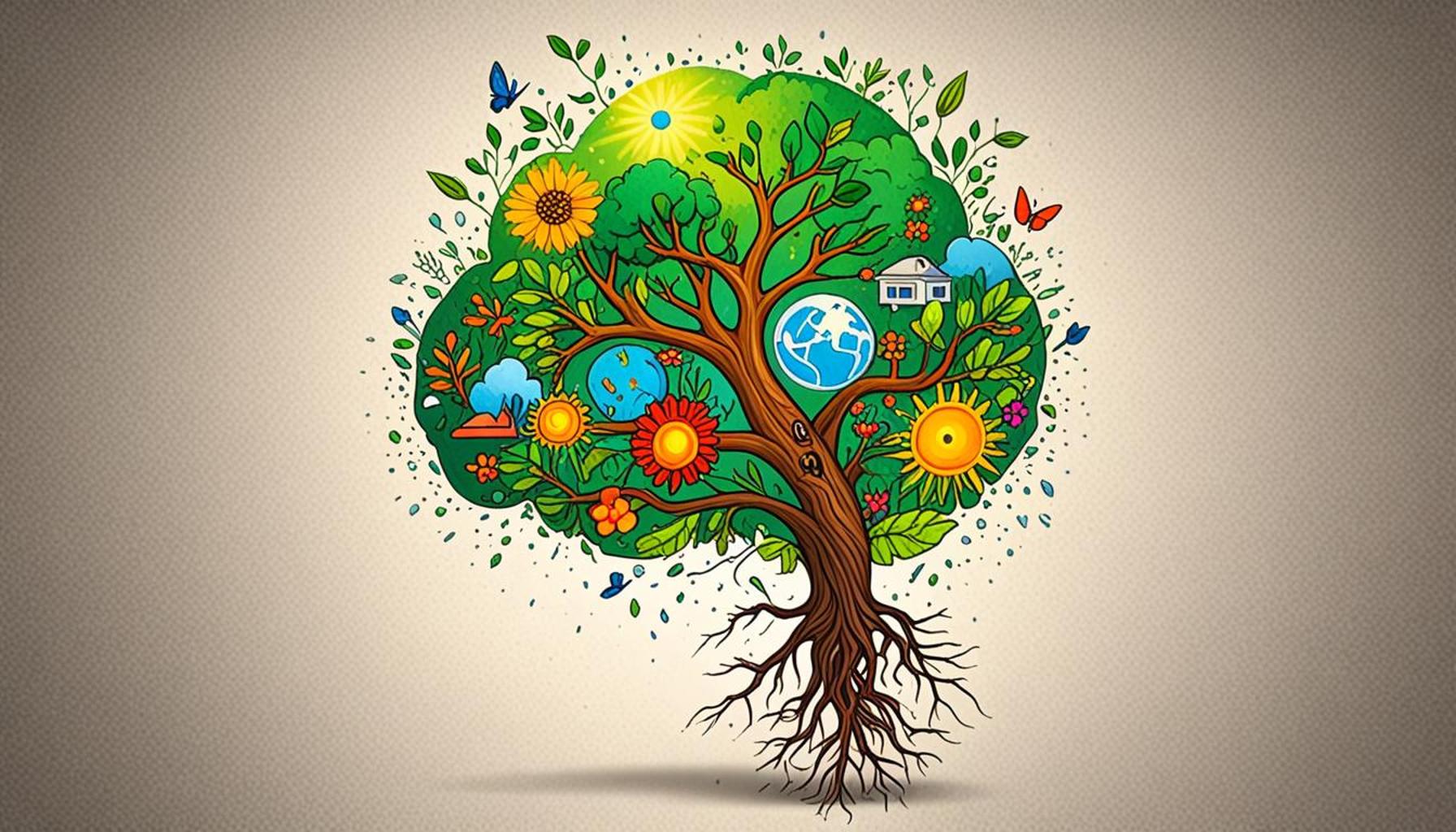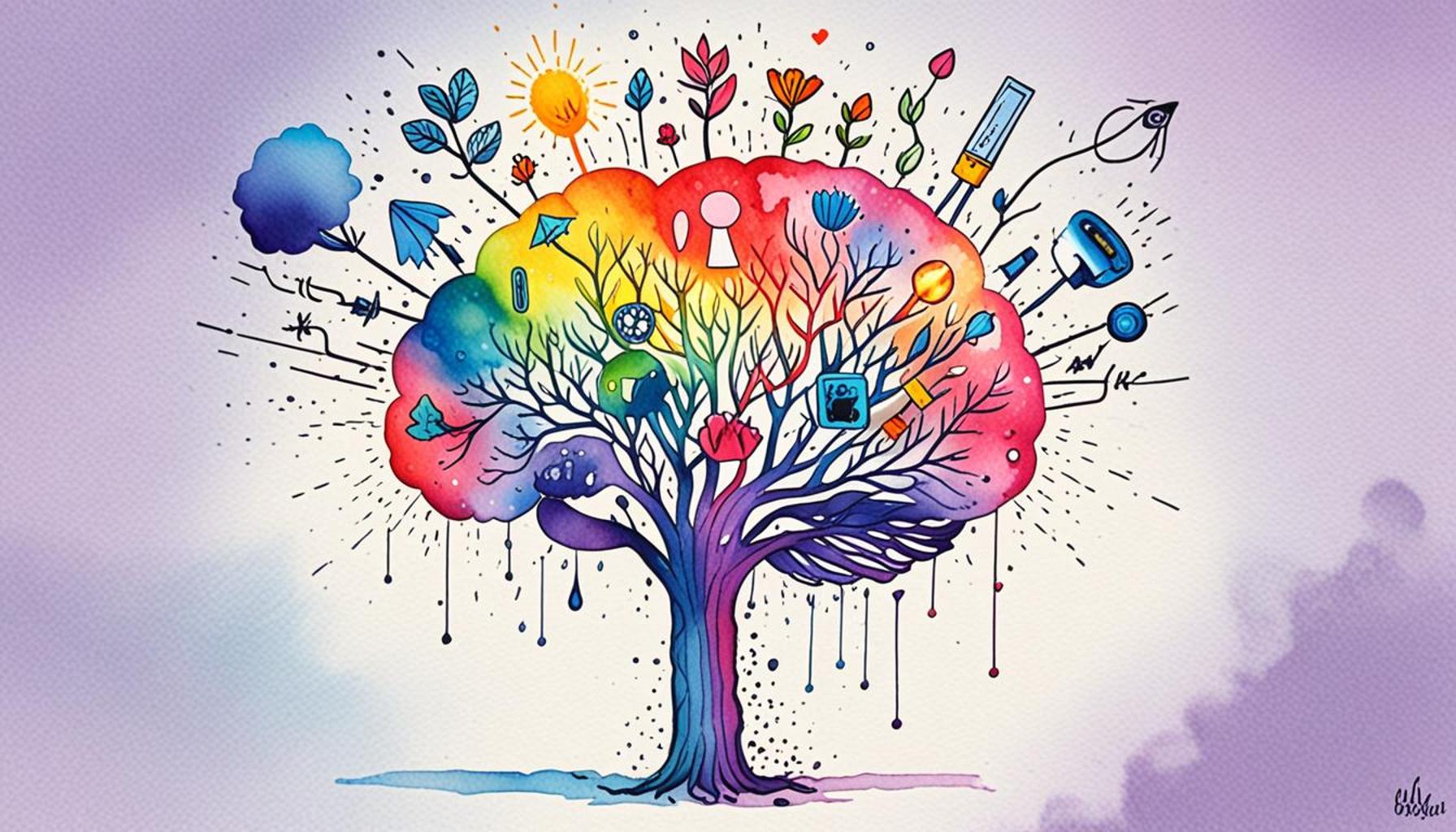Resilience and Sustainability: Growth Mindset Techniques to Face Environmental Challenges

Understanding Resilience and Sustainability
In today’s rapidly changing world, where the impacts of climate change are becoming increasingly evident, the need for communities and individuals to embrace both resilience and sustainability has never been more critical. These concepts not only relate to environmental sustainability but also to the social and economic frameworks that support our communities. A robust growth mindset facilitates these efforts, empowering people to not merely endure challenges but to turn them into catalysts for positive change.
For instance, when severe flooding disrupts farming, it can be disheartening for local farmers in regions like Nigeria’s Benue State, a key agricultural area. However, by embracing change and adapting practices, farmers can learn to implement techniques such as planting flood-resistant crops or adopting raised-bed planting to enhance drainage. This adaptability not only improves crop yield but also instills a community-wide sense of resilience.
Techniques for Cultivating Resilience and Sustainability
To cultivate resilience and contribute to sustainability, individuals and communities can adopt several key techniques:
- Embracing change: Acceptance of the unpredictable nature of environmental conditions allows individuals to respond proactively rather than reactively. This adaptability can transform how communities handle agricultural cycles or energy usage.
- Problem-solving skills: Encouraging a culture of innovation can shift perspectives. For example, community workshops that focus on brainstorming solutions for local waste management issues can help develop practical and creative ideas to tackle pollution.
- Community engagement: When individuals unite for a common cause, the impact is exponentially greater. Local initiatives—like tree-planting events or recycling campaigns—can foster a deep sense of community and collective action.
- Continuous learning: Regularly updating knowledge on sustainable practices and technological advancements ensures readiness to adapt. Farmers must stay informed about the latest crop species or resource-saving techniques to enhance productivity sustainably.
In Nigeria, adopting these strategies is crucial, especially as communities grapple with challenges like desertification in the North and severe erosion in coastal areas. Urban dwellers can spearhead initiatives to combat the pervasive issue of plastic waste by organizing clean-up campaigns and promoting recycling programs. Proactive measures like these not only benefit the environment but also foster resilience among community members.
This exploration will further delve into successful case studies and practical steps, revealing how individuals and communities can harness a growth mindset to face environmental challenges. By learning from each other’s successes and pushing for innovative approaches, we can build a more sustainable future that is both inclusive and adaptable.
RECOMMENDED: Check out this similar article
Building a Foundation for Adaptive Strategies
In confronting the varied environmental challenges facing Nigeria, the integration of resilience and sustainability into daily practices has emerged as essential for communities striving to thrive despite adversity. These principles serve as the bedrock for developing a proactive approach to ecological and societal issues, enabling individuals to transform setbacks into stepping stones for growth. As climate-related phenomena such as erratic rainfall patterns and increased flooding continue to disrupt lives and livelihoods, adopting a growth mindset becomes paramount.
Recognizing Local Challenges and Opportunities
To tackle environmental challenges effectively, a clear understanding of local issues is crucial. For instance, in the northern regions of Nigeria, farmers face the dual threats of desertification and water scarcity. Conversely, coastal areas grapple with the devastating effects of erosion and rising sea levels, which jeopardize homes and agricultural land. Hence, adaptability becomes a tool for survival, as communities learn to innovate and adjust their practices to harmonize with nature rather than resist it.
- Water conservation techniques: In regions plagued by drought, techniques like rainwater harvesting and the use of more efficient irrigation systems, such as drip irrigation, can create a sustainable water supply, allowing crop growth even in the harshest conditions.
- Agroforestry practices: Integrating trees into farming systems not only enhances soil quality but also provides shade for crops, reducing temperature stress and improving biodiversity.
- Renewable energy sources: Communities rich in sunlight and wind can invest in solar panels and wind turbines. These not only reduce dependency on fossil fuels but also bring down energy costs, enhancing economic sustainability.
Moreover, leveraging technology can bolster community resilience. Mobile applications have revolutionized communication, enabling farmers to receive timely weather updates, market prices, and expert advice. This exchange of information fosters a culture of empowerment and knowledge-sharing, allowing individuals to make informed decisions that enhance productivity and sustainability.
Innovative Education and Capacity Building
Beyond immediate practical measures, education plays a pivotal role in promoting a culture of adaptability and sustainability. Schools can serve as valuable platforms for instilling resilience in the younger generation. Workshops that teach students about environmental conservation and sustainable practices help imbue a sense of responsibility towards the planet. Moreover, these educational endeavors can extend to adult members of the community, offering seminars and training sessions on topics such as organic farming and waste management.
Furthermore, local governance can foster a supportive environment for these initiatives by providing resources and creating policies that encourage sustainable practices. For example, by incentivizing recycling programs or offering grants for renewable energy projects, governments can stimulate community engagement and investment in resilience-building activities.
As we explore multiple avenues for promoting resilience and sustainability, it becomes increasingly clear that through comprehensive education, innovative adaptation practices, and effective community engagement, Nigeria can build a brighter, more sustainable future. Harnessing a growth mindset empowers individuals to seek solutions rather than succumb to despair, paving the way for a collaborative and resilient society.
Understanding Resilience in Environmental Contexts
Resilience, in the face of environmental challenges, is not just about bouncing back from adversity but involves a proactive approach to adapt and thrive in changing conditions. When individuals embrace a growth mindset, they are more likely to view environmental challenges as opportunities for innovation rather than insurmountable obstacles. This perspective shifts the focus from simply mitigating damage to actively participating in sustainable practices.
Growth Mindset Techniques for Environmental Sustainability
Incorporating a growth mindset into environmental sustainability can manifest in various practical techniques. For instance, individuals and communities are encouraged to engage in continuous learning about their local ecosystems, exploring the interconnections within nature, and promoting habitats that bolster biodiversity. Educational programs that emphasize hands-on experiences could significantly enhance understanding and appreciation of ecological dynamics.Furthermore, actionable strategies such as community gardening and resource-sharing initiatives foster collaboration and shared responsibility towards the environment. These actions not only mitigate ecological footprints but also strengthen community ties, creating a sense of belonging and collective purpose.
| Category 1 | Category 2 |
|---|---|
| Community Engagement | Promotes collaboration, enabling shared solutions to environmental issues. |
| Innovative Problem Solving | Encourages creative thinking, leading to sustainable alternatives and practices. |
By fostering resilience and a growth mindset, individuals can effectively contribute to sustainable practices that address pressing environmental challenges. With a network of proactive individuals, societies can navigate complex ecological landscapes, reaffirming our commitment to sustainability while securing a viable future for generations to come.
RECOMMENDED: Check out this similar article
Community-Centric Solutions and Collaborative Endeavors
As communities in Nigeria continue to grapple with environmental challenges, collaboration emerges as a vital element in fostering resilience and sustainability. The collective effort of individuals, organizations, and governmental agencies can significantly amplify initiatives aimed at addressing environmental degradation. By creating networks of support and shared knowledge, communities can empower one another and model effective strategies that yield tangible results in the face of adversity.
Local Hero Initiatives
Local heroes play a crucial role in mobilizing communities toward sustainable practices. Consider the stories of grassroots movements driven by passionate individuals who have championed conservation efforts. For example, initiatives like “Clean Up Nigeria” showcase how volunteers gather in cities to restore public spaces and educate community members about waste management. Such actions not only foster environmental awareness but also instill a sense of ownership and pride within communities.
Additionally, the concept of community gardens has gained traction in urban areas, proving useful in promoting food security and social cohesion. These gardens offer families the chance to grow their own produce, fortifying the community against the rising cost of living while ensuring access to fresh fruits and vegetables. This innovative approach not only addresses food scarcity but also serves to educate members about the importance of sustainable agriculture and biodiversity.
Climate-Resilient Infrastructure Development
Another crucial aspect of community resilience is the advancement of climate-resilient infrastructure. As frequent flooding and poor drainage systems disrupt lives, investing in infrastructure that can withstand these events is essential. Innovative designs such as permeable pavements and green roofs can absorb excess rainwater, reducing flood risk while simultaneously enhancing urban green spaces.
Furthermore, the development of low-cost housing models that incorporate sustainable materials and energy-efficient designs can help communities rebuild stronger after disasters. Organizations like Habitat for Humanity have begun implementing environmentally responsible building techniques, which support not only the restoration of homes but also reduce the overall environmental impact on the community.
- Partnerships with NGOs: Collaborating with non-governmental organizations can provide communities with the training and resources needed to implement sustainable practices effectively. NGOs often bring innovative solutions tailored to the complexities of local environments.
- Microfinance Programs: Facilitating access to microloans for small businesses encourages entrepreneurs to adopt eco-friendly practices, enabling them to contribute positively to both the economy and the environment.
- Exchange Programs: Establishing platforms for knowledge exchange between different communities, where successful techniques in one area can be shared and adapted in another, promotes innovation and strengthens networks for resilience.
The empowerment of women is another pivotal factor in effective community adaptation. Research shows that when women are engaged in environmental initiatives, they significantly contribute to positive outcomes in food production and sustainable resource management. Programs aimed at enhancing women’s skills and knowledge in agriculture can lead to improved livelihoods for families, thereby bolstering socio-economic stability within communities.
Ultimately, the interdependence of community efforts emphasizes the potential for grassroots activism to evoke change. By harnessing the strengths within their communities, Nigerians can work towards sustainable development and showcase the resilience that can emerge from collaboration and a growth mindset. Through these elaborate efforts, regions can rise above environmental hurdles, paving the way for a more resilient future. The synergy between community-driven initiatives and innovative social frameworks puts Nigeria on a promising path toward sustainability amidst challenges.
YOU MAY ALSO LIKE: Read read another article
Conclusion
In summary, the journey toward resilience and sustainability in Nigeria demands a collective growth mindset that embraces collaborative approaches, innovative solutions, and grassroots activism. The intertwined narratives of community-centric efforts, such as local hero initiatives and climate-resilient infrastructure, underscore the strength found in unity. By combining resources, knowledge, and effort, communities can tackle environmental challenges more effectively and create lasting impacts.
As we have seen, effective adaptations hinge on the empowerment of individuals—especially women—who serve as catalysts for change in sustainable resource management and food production. This critical engagement not only contributes to improved livelihoods but also anchors communities with the confidence necessary to confront today’s pressing environmental issues.
As Nigeria navigates through issues like flooding and resource scarcity, the establishment of partnerships with non-governmental organizations, the utilization of microfinance for eco-friendly entrepreneurship, and the facilitation of knowledge exchange become paramount. Each of these approaches provides foundational support that can bolster community resilience and promote sustainable development.
Ultimately, the future of Nigeria’s environmental landscape will depend on the willingness of its communities to adopt innovative strategies rooted in collaboration and a strong sense of responsibility. By embracing a proactive stance and drawing on the wealth of local knowledge, Nigeria can inspire a movement towards a sustainable future filled with possibility, ensuring that resilience becomes a defining characteristic in the face of environmental challenges.



